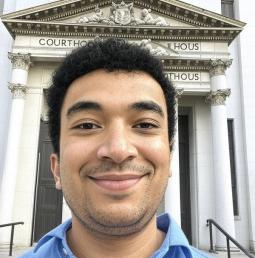🔴 Graham Linehan on Trial for Harassment & Property Damage : Trial So Far
Graham Linehan denies harassing 18-year-old trans activist Sophia Brooks and damaging her phone in a high-profile Westminster Magistrates’ Court case. Graham Linehan, co-creator of Father Ted and The IT Crowd, is on trial at Westminster Magistrates’ Court, accused of harassing 18-year-old transgender activist Sophia Brooks and damaging her phone. The 57-year-old denies the charges, maintaining that his online posts were in the public interest and that the confrontation outside a conference was a reflexive response to provocation. The case has drawn attention for its clash of free speech, gender identity debates, and the wider impact of social media on personal safety.
Prosecutors say that in October 2024, Linehan posted a series of abusive tweets targeting Ms Brooks, calling her a “deeply disturbed sociopath” and a “domestic terrorist,” and falsely accusing her of involvement in a disruption at an LGB Alliance event. The complainant was not present at the event.
Ms Brooks told the court the posts left her distressed and fearful that a vigilante might “stab me on the street” or “beat me up.” Defence counsel Sarah Vine KC repeatedly questioned her memory of fear, to which Brooks often replied, “I don’t remember.”
The case also centres on a confrontation at the Battle of Ideas conference, eight days later. Ms Brooks said Linehan called her a “groomer” and accused her of targeting children. When she challenged him outside the venue about the “domestic terrorist” label, video evidence showed him taking her phone and throwing it into the road. Brooks said she had been filming him to prompt an apology.
Linehan’s defence argues Ms Brooks harassed him and other attendees using her phone, and denies causing the phone damage. He told police that grabbing the phone was a reflexive response to provocation, and that his online posts were in the public interest.
The prosecution maintains Linehan’s conduct crossed the threshold into harassment, pointing to his “extreme personal animosity” and the impact on Ms Brooks, amplified by his social media following of over 500,000. The defence highlighted Brooks’ own online behaviour, her attempts to locate Linehan’s address, and her actions at the conference.
On the second day of his Westminster Magistrates’ Court trial, Graham Linehan told the court that his life had been “made hell” over the last decade by transgender activists, including Sophia Brooks, the complainant in the case. The Father Ted co-creator, 57, insisted the trial was “just the latest attempt to punish me by process” for his views on gender identity.
Linehan said activists had “demonised anyone who stands up to them,” alleging that predatory individuals exploit self-identification to manipulate authorities, with police “doing their bidding.” He described Brooks as “misogynistic,” “abusive” and a “bully,” claiming she had previously harmed others online while operating under anonymity. He said he wanted to expose her behaviour publicly.
The trial has already heard that in October 2024 Linehan posted a string of social media messages describing Brooks, whom he referred to as “Tarquin,” as a “deeply disturbed sociopath” and “domestic terrorist,” accusing her of involvement in a disruption at an LGB Alliance event. Video evidence shows the subsequent confrontation outside the Battle of Ideas conference, during which Linehan grabbed Brooks’ phone and threw it into the road. Linehan described the act as instinctive, prompted by provocation and personal comments about his family. He denied intending to incite violence, stating: “The violence and toxicity in the trans debate comes entirely from the trans side.”
Acting Detective Sergeant Thomas Wells, who handled the case, told the court of the extensive reporting by trans activists, quick to claim that the online situation could escalate to “murder.” Messages to police included advocating for Linehan to face large fines, with one activist noting he could crowdfund even £100,000 but advising officers that a significant penalty would deter harassment. The sergeant confirmed Linehan has no criminal record and stressed that im police statements to press his views had been labelled “anti-trans” rather than “Gender Critical,” which he agreed was regrettable.
The defence argued that Brooks herself provoked the confrontation, filming Linehan to extract an apology, and that the phone’s age and prior condition meant any alleged damage could not definitively be attributed to him. Counsel described Brooks’ claims of being “alarmed and distressed” as robotic and vexatious, emphasising her own prior online harassment of others. They argued that Linehan’s online posts expressed sincerely held beliefs and journalistic intent, noting he had alerted police about Brooks’ alleged harassment and publicised her actions at events in a lawful manner.
Linehan’s barrister submitted that no crime of harassment or criminal damage had been proven. They cited the complainant’s credibility, the context of the confrontation, and the absence of private material shared in public posts, formally submitting that the defendant had “no case to answer” on either charge.
After heated exchanges during cross-examination, including a dispute over the complainant’s gender, the court adjourned until 29 October, with Linehan released on bail.




